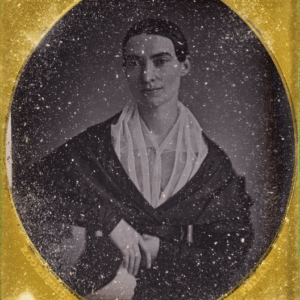JTF (just the facts): A total of 12 large scale color photographs, framed in white and unmatted, and hung against white walls in the main gallery space, the back gallery, and the entry/reception gallery. All of the works are chromogenic prints, made in 2017 or 2018. Physical sizes range from roughly 25×34 to 71×90 inches (or reverse), and all of the prints are available in editions of 6. (Installation shots below.)
Comments/Context: With the Trump administration actively rolling back regulations on drilling, pipelines, and protected lands, aggressively changing policies on immigration and border areas, and more broadly disregarding the science of climate change, the use and preservation of the American landscape has become an increasingly heated flash point. For many citizens, the changes being enacted have felt so dangerous and misguided that they have begun to more broadly rise up to protest the wave of injustices (both human and environmental) that they see occurring. Mitch Epstein’s new body of work provides a thoughtful survey of a handful of these actions and and reactions, placing the land itself at the center of the visual dialogue.
The most straightforward images in this show document now vulnerable landscapes – once protected National Monuments that are now smaller in size or open to more commercial use, risking the permanent degradation or destruction of the natural wonders that exist there. The photographs are stirring reminders or clarion calls, the beauty of the endless forests of green cacti in the Sonoran Desert and the striated grey and white mesas of the Petrified Forest now in peril.
Epstein’s photographs of actual protests aren’t documents of angry crowds or overflowing marches – instead, they are scaled down to the individual, making the rebellions more poignant and personal. Protests against the Dakota Access Pipeline (and the potential contamination of fresh water sources on Sioux Reservation lands in North Dakota) became a standoff with bulldozers, water cannons, and police in riot gear, but Epstein’s images instead follow a meditative prayer walk through the snow covered fields and sit down in an improvised camp site, the resistance measured by unwavering but humble presence. Other protests in Pennsylvania turn to the trees as the battleground, with photographs of treetop sit-ins to protect the massive white pines and the determined face of a young protester whose protected arms embrace a threatened tree. Again, Epstein traces the quiet rhythms of these movements, rather than the shouting.
When Epstein turns his attention to the Mexican border and the nation’s new immigration regime, the rusting steel slatted wall that has been photographed by so many becomes the site of an intimate moment of personal anguish, with an older woman resting her head on the bars in exhaustion and despair. The picture captures the emotional trauma of that wall, even when we don’t know the backstory to the physical separation of this particular person. Another image shows us the inside of a refugee halfway house in El Paso, where the spartan conditions are made more welcoming by colored walls and freshly folded towels.
The strongest images in the show come when Epstein engages with iconic (and therefore loaded) American symbols. His image of Mount Rushmore is shrouded in white fog, the carved faces of the presidents almost entirely obscured, allowing us to imagine the site called the Six Grandfathers by the Sioux in an unblemished state. The photograph also provides a visual metaphor for presidential power lost in the mist. A second image captures an American flag flapping in the wind, its bright colors caught by the sunshine – but soon we realize the flag is flying upside down, hung that way by military veterans at the Standing Rock protests as a sign of distress. As a symbol for this moment in the nation’s history, it graphically represents a country seemingly inverted.
Making art that successfully engages with contemporary politics is a tough challenge, but failing to respond to the nation’s troubled situation is equally difficult for many. Not every one of Epstein’s images from this recent series is durably memorable, but several of the photographs on view here find the same kind of incisiveness found in his 2005 image of a dry cleaned American flag hanging in plastic. The best of these pictures captures a sense of vital communal protectiveness, where threats to our values bring out our determined humanity.
Collector’s POV: The prints in this show range in price from $15000 to $45000, based on size. Epstein’s work has become more available in the secondary markets in past few years, but the volume of prints for sale has still been relatively small, with prices ranging between $2000 and $63000.













